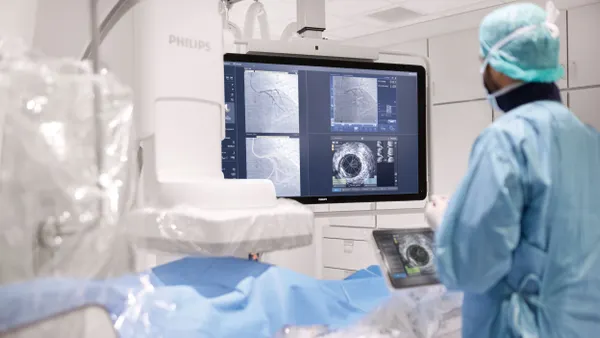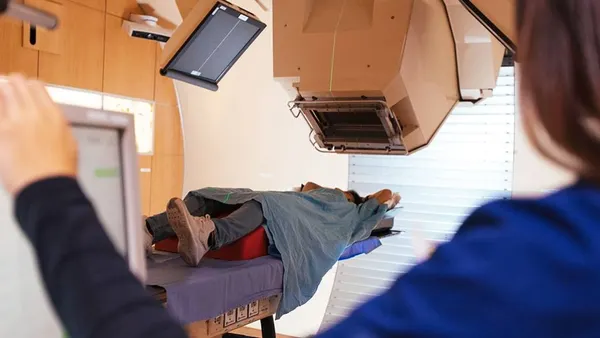Dive Brief:
- Myriad Genetics CEO Mark Capone resigned from the molecular diagnostics company after 17 years, following another quarter in which results fell short of expectations, per an announcement Thursday. Effective immediately, Myriad CFO Bryan Riggsbee will fill the vacant CEO position on an interim basis.
- The company again revised its outlook downward. Myriad now expects full-year revenues of $735 million, down from a high of $875 million going into fiscal 2020. The back-to-back reductions in the full-year outlook continue the underperformance seen in 2019, when Myriad missed its original sales target by almost $40 million.
- The simultaneous leadership transition news and financial figures that failed to live up to the company's forecast triggered a 30% drop in its stock price in postmarket trading Thursday.
Dive Insight:
Myriad has endured a rough start to its fiscal year. In November, shares in the company fell 40% after it posted double-digit declines in sales at its two main units and lowered its outlook for the full year by around 7%.
The board "mutually agreed that now is the right time for a leadership transition," chairman John Henderson said in Thursday's statement. Riggsbee will serve as interim CEO, as well as continuing as CFO, while Myriad looks for a permanent replacement for Capone.
Although Myriad framed the change as a way to position itself for the next phase of growth, Cowen analyst Doug Schenkel questioned whether a new CEO alone will be enough to get Myriad back on track.
"It clearly was time for a change. Does the change of CEO go far enough? Why should investors trust this management team and this Board to make the right decisions after a decade plus of making so many wrong ones?," Schenkel pressed management on the earnings conference call Thursday.
Whoever takes up the position will inherit numerous areas in need of attention. Myriad attributed underperformance in the second quarter to a 47% cratering in prenatal sales, but the company's other three biggest units also posted falls in revenue ranging from 6% to 13%. Sales at the hereditary cancer division, which accounted for almost two-thirds of total revenues in the quarter, fell 7%.
Talking to investors on the second quarter results call, Riggsbee linked the subpar prenatal sales to a problem stemming from the integration of Counsyl, the women's health company Myriad bought for $375 million in 2018.
"We saw lower than anticipated cash collections from our prenatal business. Prenatal cash collections were negatively impacted by issues in billing operations that occurred during the transition of the homegrown Counsyl billing system to an industry standard system used by Myriad," Riggsbee said.
Myriad has resolved the issues, according to Riggsbee, but not before they put a $10 million dent in its second quarter sales. The other unexpected headwind was related to UnitedHealthcare's coverage of GeneSight, previously a bright spot during Myriad's recent difficulties. Myriad expected sales of its GeneSight depression test to increase sequentially as a result of the UnitedHealthcare contract, but revenue in the second quarter fell slightly short of the $22.7 million generated over the first three months of the year.
Riggsbee attributed GeneSight underperformance to the proportion of samples being denied and the patient pay portion, both of which exceeded expectations. Myriad expects the problems to drag on, leading it to factor lower GeneSight revenue into its downgraded outlook for 2020. Even so, Myriad is planning to expand its GeneSight sales force by 40%.
Reflecting on recent years, Schenkel remained wary of Myriad's optimism in new leadership.
"[Myriad] has not only notably under-performed, it has done so while buying back nearly $1B in stock, completing a number of acquisitions that have come up short of targets, and setting analyst day targets with a myriad of aspirational and ultimately unfulfilled goals," Schenkel wrote to investors following the call. "It is tough to have confidence in this leadership team and to confidently believe that we really know what is going on with the business given a litany of obfuscations."











